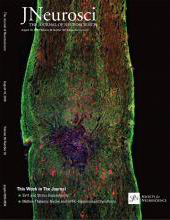- EN - English
- CN - 中文
Testing Depression in Mice: a Chronic Social Defeat Stress Model
小鼠抑郁症检测:慢性社会挫败应激模型
发布: 2017年04月05日第7卷第7期 DOI: 10.21769/BioProtoc.2203 浏览次数: 23159
评审: Soyun KimAlexandra GrosAnonymous reviewer(s)
Abstract
A vast challenge within neuropsychiatric research has been the development of animal models that accurately reflect symptoms associated with affective disorders. An ethologically valid model that has been shown to be effective in studying depression is the chronic social defeat stress model. In this model, C57BL/6J mice are subjected to chronic social defeat stress induced by CD-1 aggressor mice for 10 consecutive days. Discussed here is a protocol describing the screening process of the CD-1 aggressor mice, the confrontations between the C57BL/6J and CD-1 aggressor mice, and analysis of social avoidance scores as an indication of depression-like behaviors.
Keywords: Social defeat (社会挫败)Background
Depressive disorders are recurring and life-threatening conditions that affect approximately 120 million people worldwide. Of significant interest within the field of neuropsychiatric research is the development of valid animal models for depression to aid the understanding of the neurobiological and molecular mechanisms underlying depressive disorders. Various models of chronic stress have been used to induce symptoms in mice that are relevant to depression, among those are chronic unpredictable stress, foot-shock stress, immobilization stress followed by measurements of anhedonia or despair-like behaviors (e.g., sucrose preference test, forced swim test and tail suspension test), but they are not well validated as models of human depression (Krishnan and Nestler, 2011). Currently, chronic social defeat stress has been widely accepted as a well-validated model for depression, because of its reliability and reproducibility (Berton et al., 2006; Krishnan et al., 2007; Golden et al., 2011; Krishnan and Nestler, 2011; Russo and Nestler, 2013). The social defeat paradigm has been validated as a good model of human depression because of following reasons: 1) The depression phenotypes of susceptible mice (social avoidance, anhedonia, metabolic changes, etc.) are reversed by chronic treatment of anti-depressant drugs but not by acute administration. 2) Social defeat stress produces both a susceptible and resilient phenotype and this can be used to explain individual differences of human stress susceptibility in depression pathophysiology. 3) The susceptible phenotypes induced by social defeat stress are long lasting with concomitant genetic and epigenetic changes in the brain reward circuitry.
Materials and Reagents
- C57BL/6J (THE JACKSON LABORATORY): 7-8 weeks old mice are used in social defeat (6-7 weeks mice are ordered for a week acclimation period in the vivarium)
Note: Mice are housed in standard cages with 4 to 5 mice per cage. - CD-1 mice (Charles River): Retired male breeder mice were 4-6 months of age and singly housed in standard mouse cages
Note: Social defeat paradigms use a consistent subordination of subject mice as a social stressor and a forced subordination strategy is employed in this protocol with the most widely used strains, C57BL/6J: CD-1 pair. - Cleaning solution (for cleaning arena and custom Plexiglas social interaction arena/divider in between trials): 0.5% hydrogen peroxide
Equipment
- Clear rat cages (disposable rat cage with bedding) (Innovive, catalog number: RS1-H-C8 )
- Standard water bottle (mouse water bottle) (Innovive, catalog number: M-WB-300 )
- Water bottle stopper with sipper tube (Neoprene stopper, size: #8.5; Ancare, 1” bend tubes – open tip) (Ancare, catalog number: OT-199 - 3” )
- Cylinder (custom made, plastic holder for additional water spout; Figure 2B)
- Divider (custom made, clear perforated Plexiglas plate; Figure 2B)
- Removable enclosure (custom made, clear Plexiglas, top and bottom sides are open; Figure 3B)
- Stopwatch
- Open field chamber (custom made, 44 [w] x 44 [d] x 30 [h] cm)
- Video tracking system for social interaction test (e.g., Noldus Information Technology, model: EthoVision system , CCD camera & computer)
Software
- Tracking software: EthoVision XT (Noldus Information Technology)
Procedure
文章信息
版权信息
© 2017 The Authors; exclusive licensee Bio-protocol LLC.
如何引用
Readers should cite both the Bio-protocol article and the original research article where this protocol was used:
- Kim, H., Call, T., Carotenuto, S., Johnson, R. and Ferguson, D. (2017). Testing Depression in Mice: a Chronic Social Defeat Stress Model. Bio-protocol 7(7): e2203. DOI: 10.21769/BioProtoc.2203.
-
Kim, H. D., Hesterman, J., Call, T., Magazu, S., Keeley, E., Armenta, K., Kronman, H., Neve, R. L., Nestler, E. J. and Ferguson, D. (2016). SIRT1 mediates depression-like behaviors in the nucleus accumbens. J Neurosci 36(32): 8441-8452.
分类
神经科学 > 行为神经科学 > 认知
您对这篇实验方法有问题吗?
在此处发布您的问题,我们将邀请本文作者来回答。同时,我们会将您的问题发布到Bio-protocol Exchange,以便寻求社区成员的帮助。
Share
Bluesky
X
Copy link












